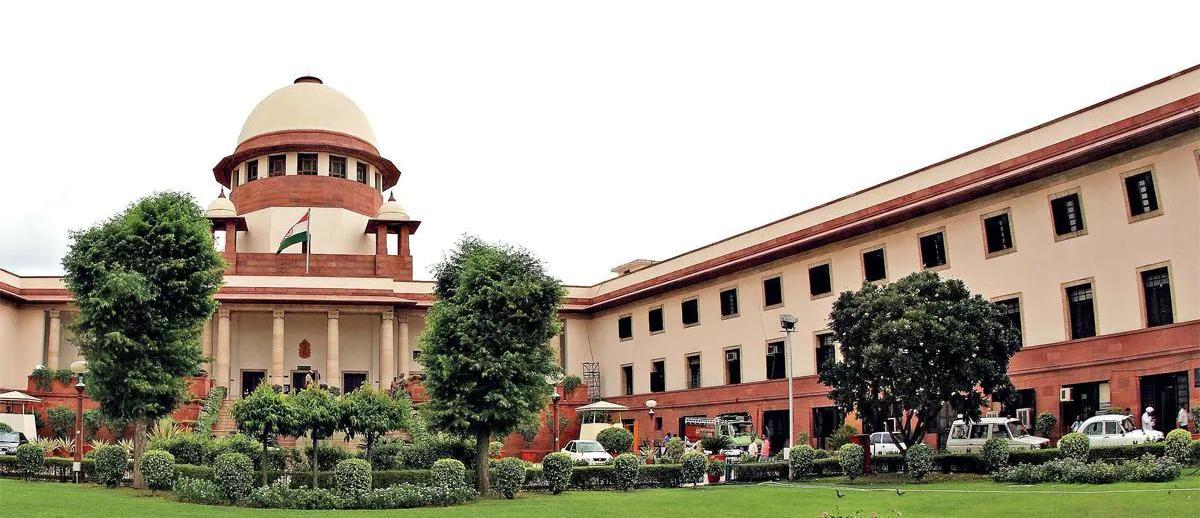
J&K demand for property to give permanent resident status ‘odd’: SC
text_fieldsNew Delhi: The standards set forth by Jammu and Kashmir's Constitution for persons seeking to get permanent resident status were called into question by the Supreme Court on Monday.
The need to own property as a prerequisite to obtaining this status was deemed "odd" by Justice Sanjeev Khanna, who is a member of the five-judge Constitution bench hearing petitions challenging modifications made to Article 370 of the Constitution.
“That’s also very odd, to say that you must own a property to get” permanent resident status, Justice Khanna said, Indian Express reported.
He said this as senior advocate Guru Krishnakumar sought to highlight how “thousands of Hindu and Sikh families”, who had to flee Pakistan-occupied J&K, have not been able to return to their ancestral homes to date and were “also denied other benefits extended to similarly placed displaced persons” in the erstwhile state.
Krishnakumar said this “discrimination is by reason of the operation of Section 6 of J&K Constitution and Article 35A of the Constitution of India as applicable to Jammu & Kashmir, which empowered the administration to systematically discriminate against such Indian citizens”.
He emphasised that despite being State subjects as of August 15, 1947, his clients who were forcibly removed by circumstances lost the right to be permanent residents under Section 6. He explained that those who did not fit the provision's definition of a permanent resident would have to rely on the definition from the decree issued by the J&K ruler at the time in 1927.
Then, Justice Khanna questioned whether it would be difficult to obtain records from 1927.
Senior lawyer Mahesh Jethmalani made additional arguments before the bench chaired by Chief Justice of India D Y Chandrachud on behalf of the Gujjar Bakarwal community, arguing that a comparison of relevant provisions of the Constitutions of India and J&K “unequivocally establish” that the “Union of India is sovereign qua…J&K”.
He claimed that while J&K and the Union of India both have legal sovereignty under Article 370, the locus of ultimate legislative sovereignty lies with the latter.
The J&K Constitution also “recognises the ultimate legislative sovereignty of the Union of India” in Article 5, he pointed out. The “most significant acknowledgment of legislative sovereignty of the Union over the State is to be found in Section 147 of the Constitution of J&K”, he submitted.
“The second proviso to that section prescribes that no Bill or amendment seeking to make change shall be introduced or moved in either houses of legislature in 3 areas: (i) Section 147 itself, which deals with amendments to the Constitution of Jammu and Kashmir; (ii) the provisions of Sections 3 and 5 which…vests political sovereignty and ultimate legal sovereignty in the Union of India respectively; and (iii) the provisions of the Constitution of India as applicable to the State of Jammu and Kashmir. between the Union of India and the State of Jammu and Kashmir”.
Jethmalani said that it is evident that the Constituent Assembly referred to in Article 370(2) and proviso to Article 370(3) were “unequivocally synonymous, both substantively and in procedure to be followed” and hence, “in the absence of a Constituent Assembly, an institution synonymous with it i.e., the Legislative Assembly of the State of J&K has to be read in place of the Constituent Assembly in the proviso to Article 370(3)”.
Senior advocate Kapil Sibal, in his rejoinder submissions, said he was “somewhat pained when a counsel argued that we respect the sentiments of people of J&K but you must also respect our sentiments”. He said, “To say that you must respect our sentiments, as if they’re somebody else, itself is creating a kind of chasm it shouldn’t be creating… we cannot produce this case to an emotive, majoritarian interpretation of the Constitution of India.”
Sibal disputed the claim that Parliament possessed plenary power (absolute lawmaking power) over J&K and claimed it is limited by Article 370. “They say Parliament has plenary powers under the Constitution. It’s actually the contrary. The power of Parliament to make laws is limited by Article 370…. It stares you in the face and you are talking about plenary power!”
Sibal argued that the ministerial council, not the parliament, would make the decision. This, he claimed, was done to ensure that J&K was gradually integrated into India through a simple process that allowed executives to connect with one another.
He wondered how anyone could even think of a situation where the Constituent Assembly, drafting the J&K Constitution which says it is an integral part of India, would say that the day the Assembly is not in place, abrogate 370 because there is a plenary power superior in 370.
Arguments in the matter will conclude on Tuesday.





